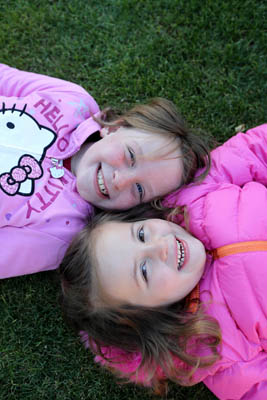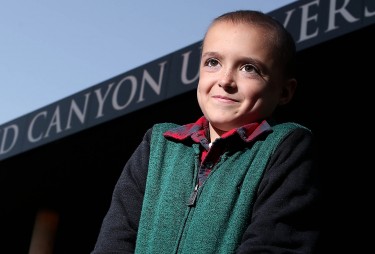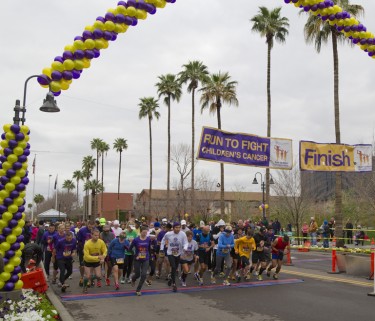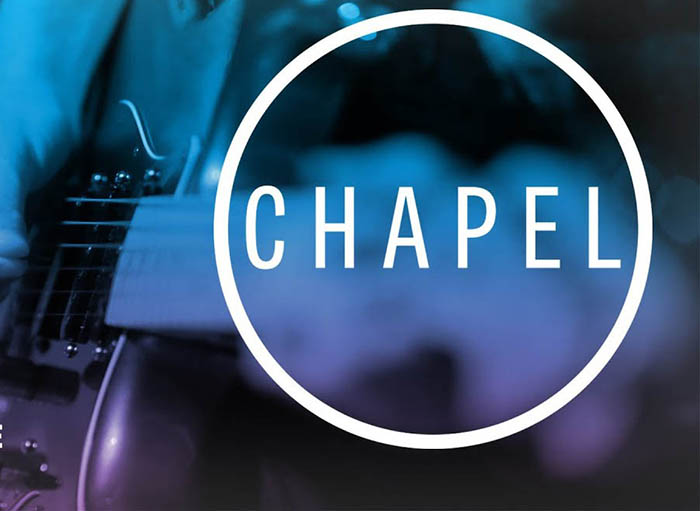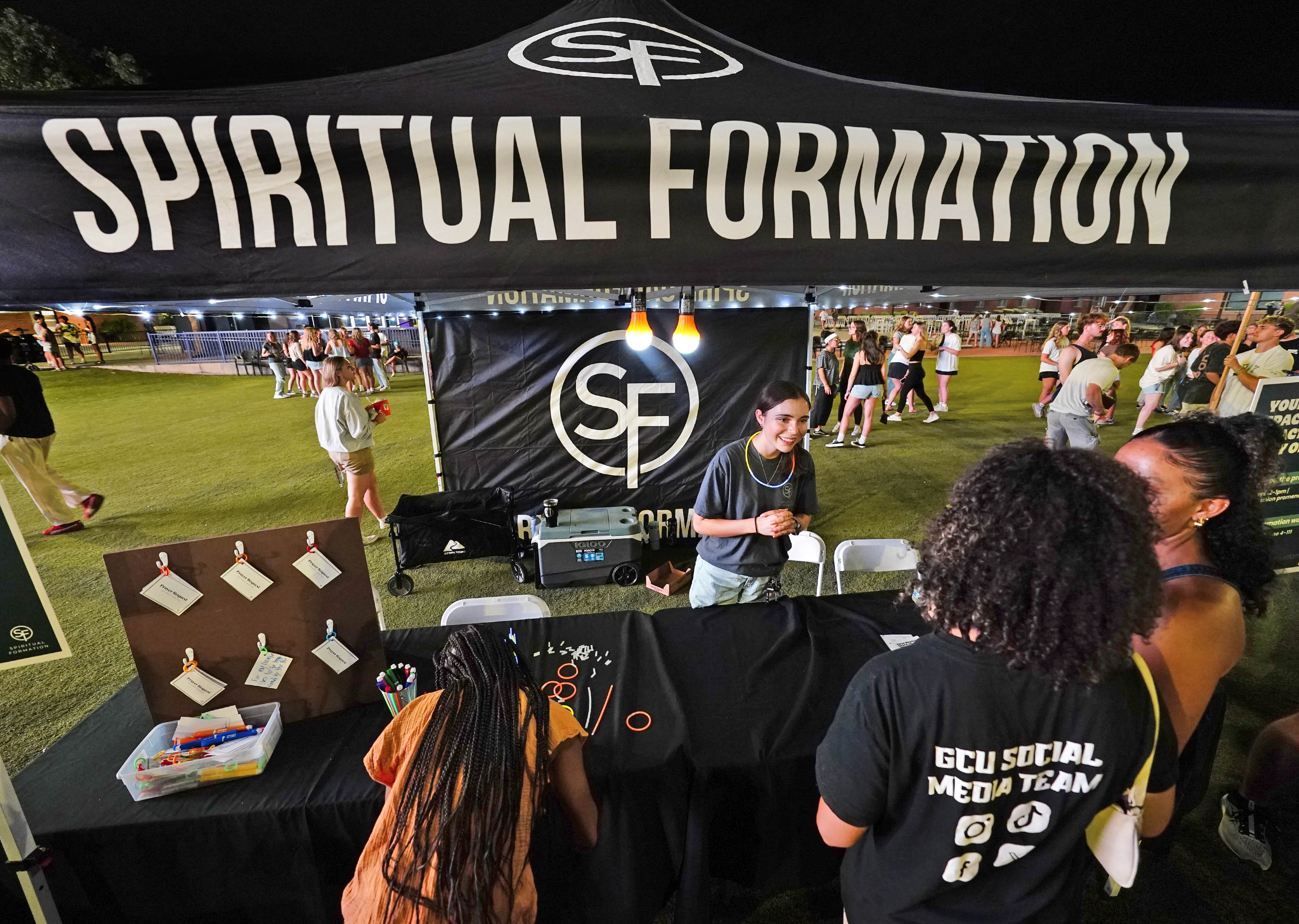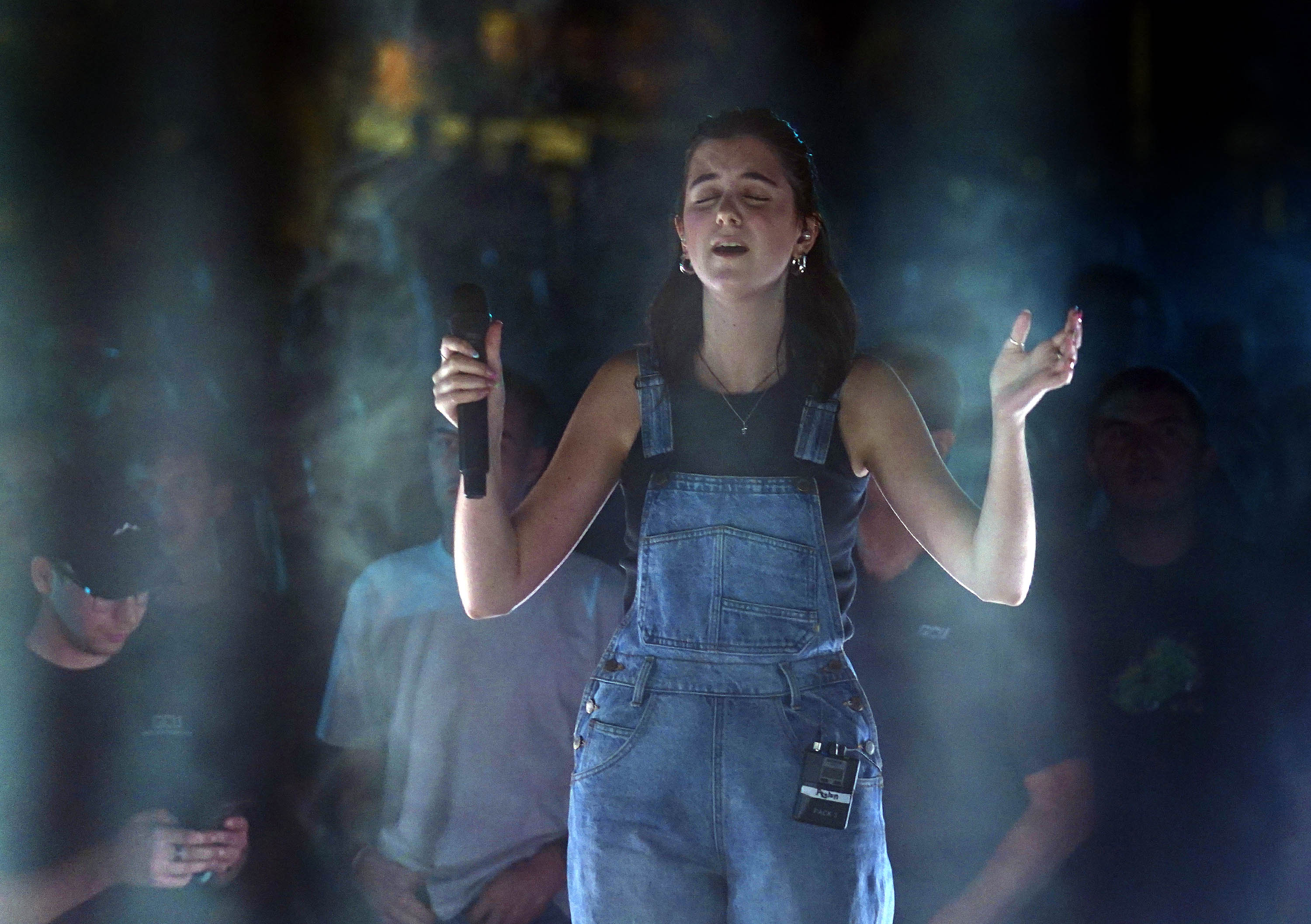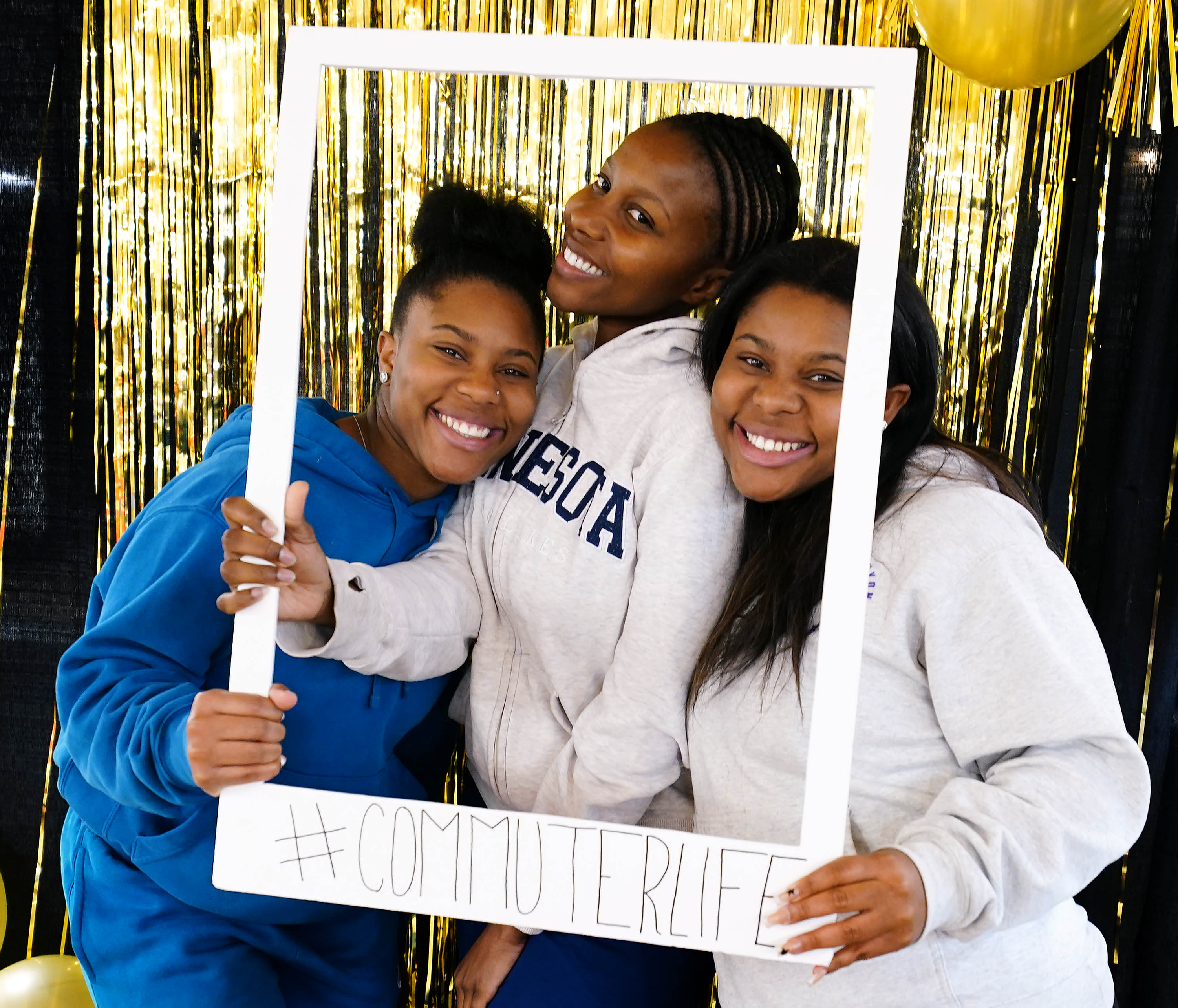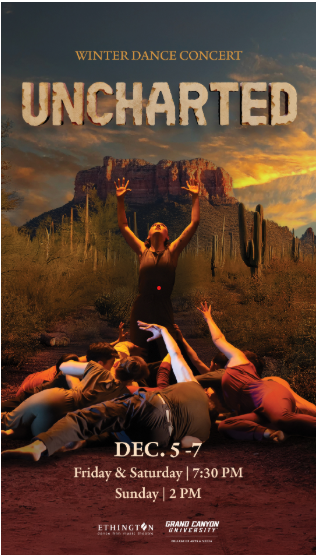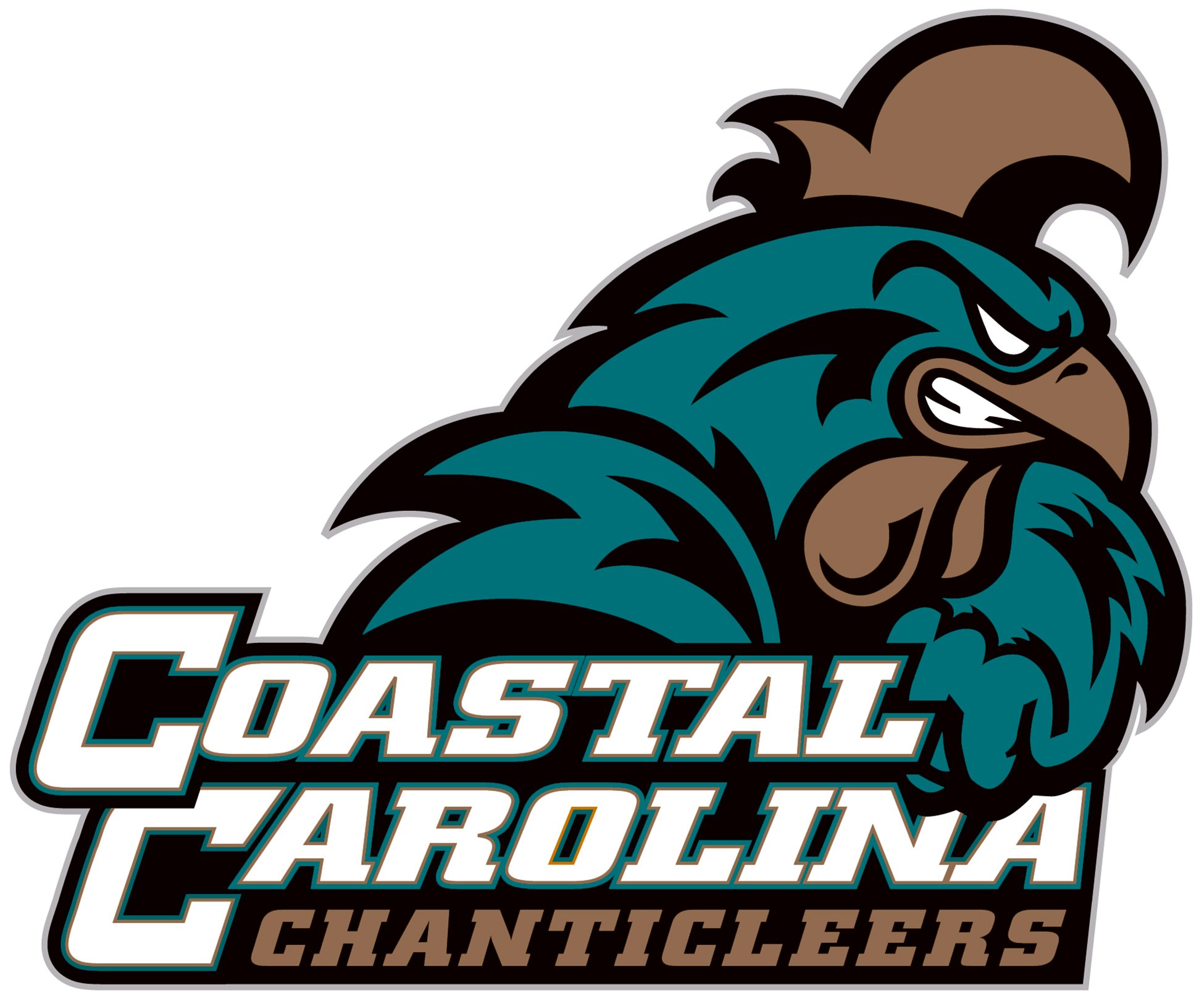Story by Michael Ferraresi
Photos by Darryl Webb
GCU Today Magazine
The roughest treatment is over. Grace Kostyk needs a spinal tap every four months now. She takes her daily chemotherapy pills with applesauce.
Things are a little easier than a year ago. Doctors removed the portable catheter surgically inserted into her chest. Not as if the needles ever stopped Grace from smiling or laughing, though. She recently went from a spinal tap to a swim class because she felt her teammates needed her.
Intravenous chemo drips and steroid side effects are now less of a burden than the painful first year of aggressive treatment to prevent the acute lymphoblastic leukemia from spreading.
Grace, now 7, served as honorary race starter at last year’s Grand Canyon University's Run to Fight Children’s Cancer, the fast-growing annual event with 10K/5K races and a cancer survivors’ walk at the west Phoenix campus. This year, her family’s Amazing Grace team is one of dozens of fundraising groups among thousands of runners, walkers, and other supporters fighting against childhood cancer.
Proceeds from the March 9 race, which organizers hope will near $100,000 this year, benefit the non-profit Children’s Cancer Network and Phoenix Children’s Hospital. The money helps families to offset heavy health care costs and stress from a cancer diagnosis. Children’s Cancer Network organizes gift bags for new patients at the hospital, links families to practical resources and provides programs to build a sick child’s self-esteem.
In the year since Grace started the 2012 race, she progressed to a point where she can play her favorite sports and get back on track with her schooling. But even though there are no more frightening hospital stays, doctors cautioned her family to maintain regular checkups until she is 11, nearly five years from diagnosis.
“I just feel like I’m determined to do everything,” Grace said in the midst of a busy afternoon in her north Phoenix neighborhood, shuffling from a baton-twirling class to a quick snack prior to meeting her academic tutor.
| How to Join the Fight | |
| For more information, go to the Run to Fight Children’s Cancer website at www.runtofightcancer.com. Friend the race cause on Facebook at /runtofightchildrenscancer and follow it on Twitter @Run2Fight.
Click here for a recap and photo slideshow of the 2013 Run to Fight Children's Cancer. |
Olivia Baumgardner, the inaugural race starter from the fall of 2011, was 4 years old when she was diagnosed with the same form of leukemia as Grace and this year’s race starter, Cooper Gokee.
Olivia’s mom, Gretchen Baumgardner, remembered one of their first hospital visits. At one point, Olivia looked up as the two were snuggled under a blanket and cried as she said, “Mommy, I don’t want any shots anymore.”
“It just ripped my heart out of my chest,” said Baumgardner, who, along with husband Michael and Olivia’s sister Ella, 3, will be returning to the race this year. “That’s that last thing you want to hear your child say.”
GCU’s community outreach manager, Jose Moreno, and his colleagues from the campus Office of Communications and Public Affairs have grown the race into more of a festival-like event. He and others have advocated for a national campaign to fight childhood cancer, marked by gold ribbons in September. Runners are encouraged to use gold shoelaces. Young cancer survivors will be given gold, superhero-like capes during this year’s race.
Race supporters have seen some children pass away in the midst of their fight against cancer, their memories now etched on a Hero Wall. Moreno said the father of a child who died from leukemia drove to GCU from Yuma to help say goodbye and grieve. Like others involved with the race, getting to know the children affected by cancer focused his attention to the cause.
“I’ve also seen kids can live through it and persevere,” said Moreno, who has been instrumental in etching the Run to Fight in more hearts and minds.
This March marks another step toward that goal, with Grace, Olivia, Cooper and every other childhood cancer survivor out of gate to lead the charge.
2013 Race Starter Cooper Gokee
The bruising seemed odd. Cooper Gokee’s parents figured he had just landed wrong. The boy never complained about pain.
Doctors discovered acute lymphoblastic leukemia after Jeff and Patti Gokee took their son in for a checkup. They were stunned. Their lives immediately changed. And at the time, they didn’t know it — but their son was about to become a spokesman for a cause.
This year, organizers of GCU’s Run to Fight Children’s Cancer named 9-year-old Cooper as the honorary race starter. The Maricopa third-grader was diagnosed less than one year ago with ALL, the most common form of childhood leukemia. Like the two girls who served as race ambassadors in the first two events, Cooper will squeeze the air horn to turn hundreds of runners loose on the fight against cancer.
Cooper’s cancer journey is just beginning. He still receives deep-tissue shots in his legs and is sometimes restricted from playing physically with his brother Ben, 12, because of injury concerns.
Jeff Gokee said the experience is still so new that his family adjusts week to week. The Gokees have found joy to be a powerful thing, and they take as much of it as they can.
Getting to Know Children's Cancer Network
Proceeds from GCU’s Run to Fight Children’s Cancer benefit the Arizona-based nonprofit Children’s Cancer Network and Phoenix Children’s Hospital. CCN provides programs and services that assist families dealing with the emotional, physical and financial strain of a child's treatment.
PROGRAMS: CCN supplies families with basics such as admission bags (care packages with toothbrushes, tissues, writing materials, teddy bears, etc.) and prepaid gas cards to help ease the massive financial burden of cancer. Programs also link families with the best resources based on their individual needs and help childhood cancer survivors develop inner strength and self-esteem.
FORMATION: Patti Luttrell, a former GCU assistant professor of nursing, co-founded the organization after coping with her own son’s cancer diagnosis. Jeff Luttrell was 5 when he was diagnosed with leukemia and underwent a bone marrow transplant. Now 24, he has survived several relapses of cancer.
FUNDING: This year, the operating budget has doubled to nearly $250,000. The organization plans to open its first office in Chandler and will hire its first employees this year as it continues to grow. Luttrell says about 91 cents on the donated dollar goes directly to families in need.
HOW TO HELP: Go to www.childrenscancernetwork.org for more information.
Contact Michael Ferraresi at 639.7030 or [email protected].

